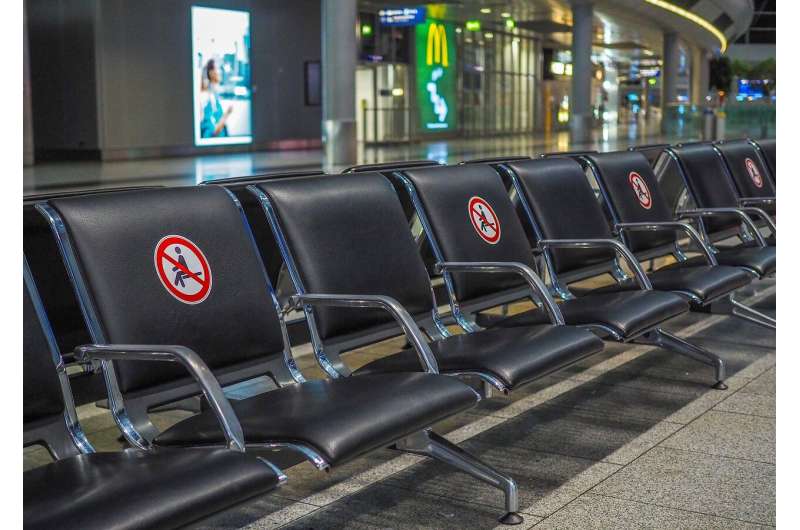
A rash of travel bans barring travelers from eight southern African countries enacted in an effort to slow the new omicron COVID-19 variant from spreading have ignited fresh debate about the efficacy of those restrictions.
Meanwhile, critics contend that the restrictions stigmatize these nations and further hobble a travel economy that’s been weakened by the prolonged pandemic.
Wendy Parmet, a Northeastern law professor who focuses on the intersection of health policy and law, says the travel bans are little more than “public health theater.”
“It’s the same problem that has afflicted every travel ban that has been put in place since the end of January 2020: It’s by nationality, it’s not by exposure,” Parmet says. “The idea that an American coming from South Africa is less contagious than a South African coming from South Africa is just nonsensical. The virus doesn’t care about which passport is in your back pocket.”
President Joe Biden moved to restrict travel following news of a new COVID-19 variant called omicron, which was first detected and reported by health officials in South Africa. Britain, Japan, Morocco and Israel also enacted travel restrictions after the World Health Organization said omicron is a “variant of concern,” last Friday.
More than 70 countries had enacted some kind of travel restrictions as of Tuesday.
A recent study in Science showed that international travel restrictions can slow the spread of COVID-19, although the disease must be caught early and restrictions must be paired with public health interventions and behavioral changes.
Parmet joins a rising chorus of public health officials and African leaders who say any benefits derived from the travel restrictions are outweighed by the high costs to the global economy.
“Travel restrictions may play a role in slightly reducing the spread of COVID-19 but place a heavy burden on lives and livelihoods,” said Matshidiso Moeti, WHO regional director for Africa.
Africa has already faced economic harm as a result of earlier travel restrictions during the COVID-19 pandemic, according to data from the World Bank.
Biden argued Monday that the travel ban gives authorities time to further study the new variant. Currently, non-U.S. citizens coming from South Africa, Botswana, Zimbabwe, Namibia, Lesotho, Mozambique, and Malawi are barred from entering the U.S.
Meanwhile, omicron COVID-19 cases have been detected in Canada, Japan, the United Kingdom, and other countries throughout Europe. One case was detected in the Netherlands on Nov. 19, indicating that omicron slipped through Dutch borders days before the country enacted a travel ban.
“It’s inappropriately stigmatizing,” Parmet says of the travel ban. “Everybody can still travel to Scotland, but you can’t travel to South Africa? You’re sending the wrong signal.”
Source: Read Full Article
